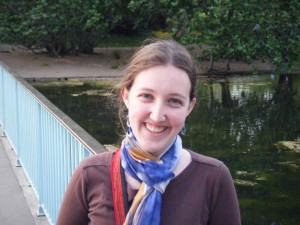This post is written in conjunction with the “Becoming a Public Scholar-Activist” course and is directed by Monica A. Coleman.
In the United States, the tortured artist has become an idealized archetype of sorts for many, taking on a bizarre type of cultural cache. Sylvia Plath’s suicide is construed as romantic, Ernest Hemingway’s as a masculine revolt against existence, and Kurt Cobain’s as adding a new sense of earnestness to his band’s frequently hopeless music. Dag Hammarskjold was not an artist, but his collected journals, posthumously published as Markings, present a portrait of a man tortured by his sense of duty and a perpetual inability to live up to the standards he set for himself. While Hammarskjold was posthumously awarded the Nobel Peace Prize in 1961 and called the greatest statesman of the twentieth century by John F. Kennedy, it is impossible to imagine these accolades bringing him any sort of solace: he would only question if such praise was his motivation instead of a servant’s heart.
Hammarskjold’s lack of inner peace and solace is both distressing and encouraging. These writings outline a standard that all who aim to either work as a public servant or activist would be wise to judge themselves by, but also establish a benchmark that very few will ever be able to meet – Hammarskjold himself never believed that his motives were as pure as they should have been. He writes of his “continual cowardice,” the grievousness of “hours frittered away,” and the “feeling of shame” that comes from betraying “that within me which is greater than I.” His self-criticism is unrelenting, but it is all in the name of ensuring that his motives and inner self is as pure and holy as possible.
While most would view being Secretary General of the United Nations as a great honor, Hammarskjold sees it as a great burden. He is in a constant struggle to never seek undue adulation and fears that he is not equipped for the task he has been given. Being Secretary General allowed Hammarskjold to spread an immense amount of goodwill throughout the world, but the power and prestige made him uncomfortable. He could not allow himself to relax or feel any sense of self-satisfaction as that would be a denial of the task he was felt to do and the humility he believed was required to do the work of G-d. In Markings, he quotes Thomas a Kempis asking, “Why do you seek rest? You were only created to labor.” This is undoubtedly a question Hammarskjold asked himself frequently.
One point above all others is clear: Hammarskjold believes that no one can truly live a life of faithful service without abandoning all self interest and divesting oneself of any trace of ego in order to focus solely on the work that there is to be done. While this is an impossible task, Hammarskjold writes that only “fully conscious self-scrutiny… can save us.” We may never be as pure as we strive to be, but in this striving guided by constant self-scrutiny, we will become less self-interested than we would be otherwise. Quite simply, we must surrender: “We must let ourselves fall continually from being into non-being. God helps us to do this.”
Hammarskjold could have declined the opportunity to be Secretary General. He may have been happier, more content, and more relaxed, but I cannot imagine him viewing it as a legitimate option. Hammarskjold believed that “in our era, the road to holiness necessarily passes through the world of action.” However, despite his activity in the public realm, he never stopped examining himself as a process of perpetual purification. Through the life and written reflections by Dag Hammarskjold, we see the importance of both action and thoughtfulness. Hammarskjold shows that in order to be holy, one must act, but in order to act, one must never stop reflecting and interrogating themselves: Are my motives pure? Is this the right decision? Will this bring about goodwill and harmony? We must remember, however, as Hammarskjold did, to never spend so much time in reflection that we forget to act. It is these two ingredients – thoughtfulness and initiative – that are necessary for all public scholars and activists to have above all others.
Micah Wimmer is a student at Claremont School of Theology pursuing his MA in a Theological Discipline (Theology). He is originally from Akron, Ohio and loves the NBA, the music of Bob Dylan, and his cat, Oliver.











